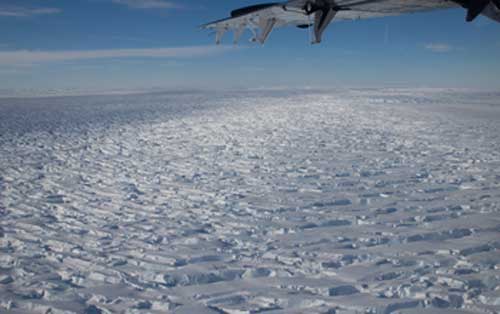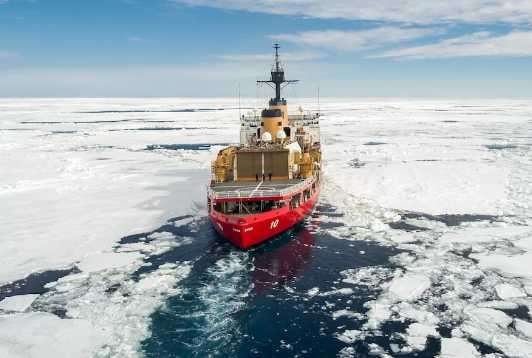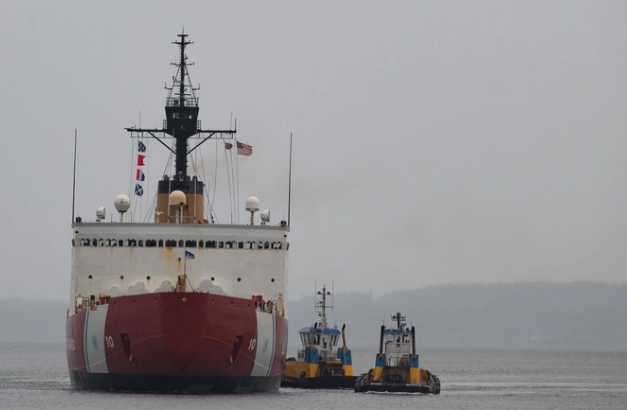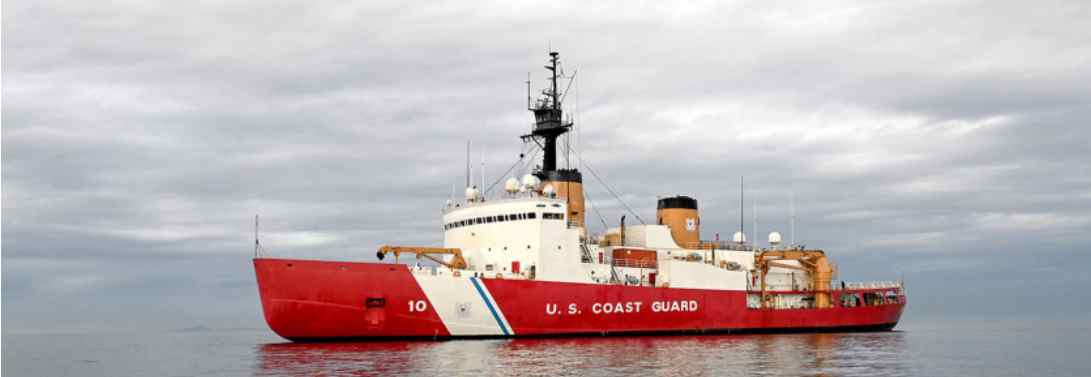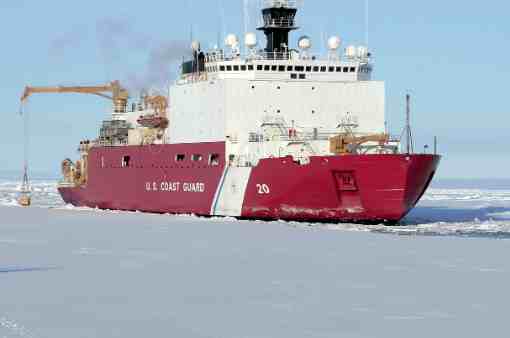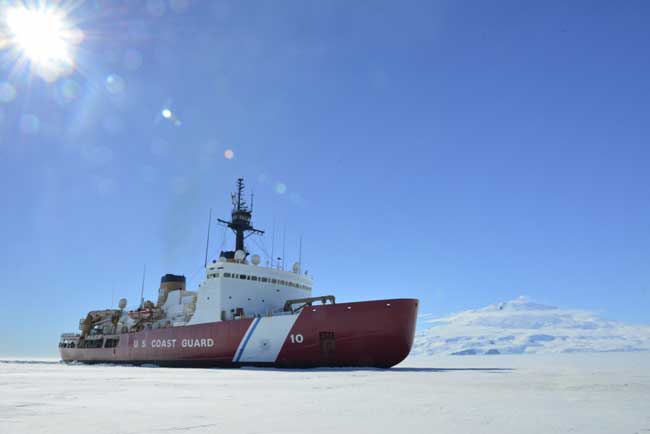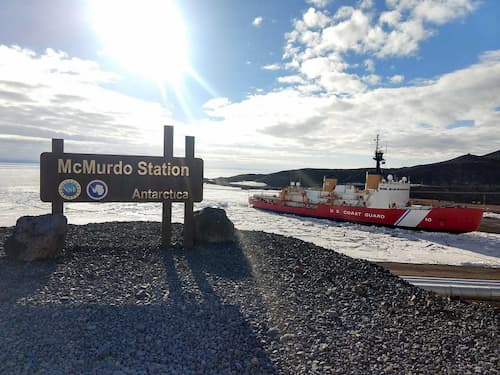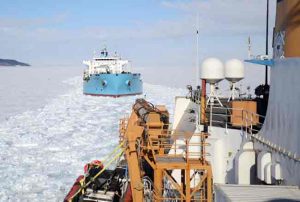
New Zealand has granted the United States permission for a U.S. Coast Guard icebreaker, the USCGC Polar Star, to visit the port of Lyttelton later this month. The icebreaker will make the port call on its way to its home port of Seattle after completing a resupply mission supporting the U.S. Antarctic Program (USAP), which is managed by the National Science Foundation (NSF). The U.S. embassy in Wellington announced the port call earlier this week.
New Zealand has not permitted port calls by U.S. naval and military vessels since its government passed a 1984 anti-nuclear law banning warships carrying nuclear weapons or operating with nuclear propulsion – something the U.S. does not disclose about its ships.
Last summer, a U.S. Navy Arleigh Burke-class destroyer made the first New Zealand port call since 1984.
U.S. Chargé d’Affaires Candy Green said in a news release that both nations would consider any future U.S. ship visits on a case-by-case basis.
The USCGC Polar Star port call will save transit time on its way back to Seattle, as the vessel would otherwise need to stop in Tasmania, a much longer oceanic haul. Once it arrives in Seattle, scientific samples and other cargo will be offloaded. Any cargo that can be shipped out of Antarctica also frees space on the Program’s support aircraft, which include the LC-130 Hercules, flown by the New York Air National Guard, and the U.S. Air Force C-17.
The USCGC Polar Star annually breaks a channel through the sea ice of Antarctica’s McMurdo Sound to allow a cargo ship and a tanker to resupply NSF’s McMurdo and Amundsen-Scott South Pole stations. This mission is part of Operation Deep Freeze, the U.S. military’s logistical support for the civilian Antarctic program, and helps NSF maintain three year-round research stations in Antarctica.
The McMurdo resupply mission also supports New Zealand’s Scott Base, a year-round station adjacent to McMurdo.
Source:NSF [xyz-ihs snippet=”Adsense-responsive”]

